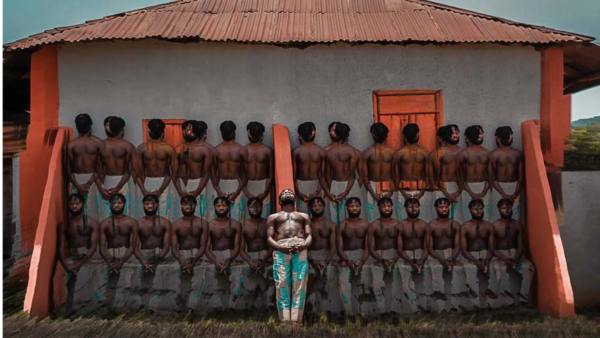

Building Beyond – 12 artists and designers selected
Twelve participants have been selected in the fourth edition of the mentorship programme Building Beyond, a collaboration of the Creative Industries Fund NL and the Prince Claus Fund. The designers and artists re-imagine the future of public space, community, and functionality in their own contexts.
6 February 2025
The selected designers and artists are from six African countries and active in various fields within the design industry, including architecture, urbanism, digital design, research and performance, with an overarching focus on modular interventions with multiple community stakeholders. The group is guided by four expert mentors: Fatima Bintou Rassoul SY, Ola Hassanain, Khensani de Klerk and Hicham Bouzid.
intent and goals of the programme
Building Beyond brings together 12 experienced designers, creatives, and artists for a year-long programme that fosters conversation, collaboration, and exchange within the cohort. We support practices that engage with challenges related to public space and communities by proposing alternative ideas that align the physical city with the realities of the lived city. Through this, we foster locally rooted critical design practices that challenge our ideas of space and citizenship. Building Beyond functions as a mentoring programme where participants are given space to reflect on their own practice and reflect together on the influences of current developments and/or movements on their practice from the local context. The programme is carried out with three main goals in mind: fostering exchange within the cohort, supporting each artist's individual practice, and facilitating interchanges with relevant external practitioners.
meet the artist and designers
Abbey IT-A is curious about the proverbial discursiveness of Contemporary Art and how it holds in praxis. They oscillate between artistic and curatorial practice to explore this interest through experimental and multi-vocal interventions – with photography, video, text, conversation and curating as likely points of departure in an independent art practice. As a curator at the Foundation for Contemporary Art-Ghana, they help support contemporary Ghanaian art practices and discourses through research, workshops, seminars, exhibitions, interventions, residencies, and labs. Abbey holds a BFA in Painting and Sculpture and is currently a candidate for an MFA in Curatorial Practice (KNUST, Kumasi). They are a 2024 Fellow of the Zeitz MOCAA & UWC Museum Fellowship Programme with a BA Honours in History (UWC, Cape Town).

Abdul Rop is an artist, designer, and creative director based in Kenya, known for his immersive sculptures and prints that inspire social change. His work is shaped by his background in sociology and religion, often exploring themes of social justice and human rights. Rop’s latest series examines the intersection of geometry and cultural symbolism, drawing inspiration from octagonal forms, architectural columns, and vibrant Kanga designs. By integrating geometric motifs and narrative-rich text, his art invites reflection on utopia and the fulfillment of basic human needs, creating a powerful dialogue on equity and societal harmony.

Adam Yawe is an object storyteller living and working in Nairobi, Kenya. His practice traverses the mediums of street photography, 2D graphics, 3D modeling, 3D printing, product design, print publications and exhibition making. In his work he seeks out reference objects in the city, acknowledges the role they play in the present, connects them to the past and reimagines them for the future. His interests lie in telling stories and building archives, aiming to light a spark in the audience that changes their relationship with these objects and ultimately the city.

Klein Muis, born Aidan Jayson Peters (24), stands as an award-winning designer, focused on fashion design and product design. Muis’ artistic journey is guided by a commitment to a research-driven, design ethos. Rooted in the belief that innovation arises from a deep understanding of culture and conflict. Klein Muis endeavors to prioritize problem-solving through the reinvention of established norms. Each garment, every product, and every idea carries the weight of purpose, addressing challenges in a sustainable manner and leaving an indelible mark on the intersection of art and functionality. As a forward-thinking artist, Klein Muis gazes into the future, embarking on a quest to explore new frontiers of design both independently and collaboratively. The artist envisions constructing a vast universe that serves as a home for all his ideas, creating a cohesive tapestry that reflects the evolution of his creative endeavors.

Douglas Opoku Antwi is a designer, curator, and event producer from Kumasi, Ghana. He leads PRJCT Kumasi, an initiative and creative community that amplifies local creative voices of Kumasi and the Ashanti Region. Collaborating with Ghanaian and international clients, his work spans art direction, branding, illustration, print design, editorial projects, apparel design, and event curation. Douglas aims to expand Ghana’s "creative capital culture" by advocating for the development of public cultural spaces in Kumasi, enabling creatives across the city to access them with minimal restrictions. Inspired by a dynamic collective of creatives, he strives to foster innovation and inclusivity in Ghana’s creative landscape.

Maame Adwoa Prempeh is an architect based in Ghana. Maame’s practice focuses on centering underprivileged communities and their needs while exploring architecture under three broad narratives: design, research, and advocacy. With an interdisciplinary practice, Maame uses design to underline the necessity of fostering partnerships between art and architecture. Through collaborative projects with artists and art institutions, she’s designed and curated exhibitions on the African continent. Guided by a community-led and participatory design approach, her current work focuses on investigating the erasure/absence of communal play spaces within the rapid urban expansion of Accra. Through her Agoro Apata intervention series, she explores play sheds as contextual solutions to the absence of well-designed communal play spaces in underprivileged communities/schools as a means of bridging the lack of access to play spaces within these communities. She is a firm believer in making architecture a more socially engaged and people-centered practice and using design as an effective platform for creative expression.

Ọlájídé Ayẹni is a media artist from Lagos, Nigeria, telling stories about the built environment and its relationship with people. He is often preoccupied with documenting urban change, and how urban change impacts people living and working within sites of action, construction, or destruction. With a background in architecture, his work is heavily inspired by the urban and built environment through which he highlights different unnoticed, everyday elements from buildings to urban and civic projects, informally designed objects, spaces, and entities, such as gates, windows, bus sheds. Particularly how they influence human interaction and experience. Through his work he hopes he can help different people understand the intricacies of the African built environment; how it looks in its many shades, and preserve its memory.

Olorunfemi Adewuyi is a Lagos-based designer and researcher, born in Kaduna, Northern Nigeria. He earned his BSc and MSc in Architecture from Covenant University, Nigeria. Operating at the intersection of art, design, and community, his work modulates between architecture, urbanism, object design, and research. His approach is deeply rooted in an engagement with memory—of cities, villages, traditional/latent ways of being/making, and crafting heritage. In 2023, he founded Omi Collective to unify his diverse practice under one umbrella. Since its inception, the collective has exhibited at Paris Design Week and was selected to showcase at the Greenhouse during Stockholm’s SFF 2025. Omi’s projects have been featured in Disegno and Wallpaper*. In 2025, Olorunfemi was recognized by Wallpaper* as an ascending star in design. He is passionate about the social and democratic potential of design, achieved through collective collaboration.

Oluwabukunmi Olukitibi is a dynamic movement artist, cultural producer, and educator committed to exploring the intersections of art, identity, and community through movement, space, memory, and human connection, centering breath as the impulse. Based in Nigeria, her practice delves into the psychosomatic dimensions of dance and performance, creating spaces for storytelling, healing, and cultural dialogue. As the founder of Hearts Heartist, she spearheads multidisciplinary initiatives that amplify voices from diverse communities, emphasizing wellness, empowerment, and creative expression. Oluwabukunmi's work extends beyond performance; she is an active culture worker, engaging in artistic collaborations, mentorship programs, and festival productions, such as ÌMÍ 2025 – A Place Is the People, a creative lab and festival she conceptualized to interrogate public spaces, identity, and urban life. Having performed and taught internationally, Oluwabukunmi is recognized for her ability to merge movement, narrative, and activism, fostering transformative experiences that resonate deeply with global audiences.

Sarri is an architect, artist, and curator based in Benghazi, Libya, and the founder of TAJARROD Architecture and Art Foundation. Sarri’s work is centered on an interdisciplinary synthesis between architecture, art, and the social sciences, dedicated to generating a critical attitude towards the built environment, and to investigating contemporary socio-cultural issues, identities and ideologies in the city. His works manifest as: research, theoretical architectural projects, art curation, and collage art. He has published theoretical projects and essays online, and curated/participated in several exhibitions locally and abroad. Sarri has a Bachelor's degree in architecture, and a Master’s degree in urban design as a Fulbright scholar.

Seble Samuel is a geographer and ecofeminist based in Addis Abeba, Ethiopia. Her focus is around participatory city making, urban ecologies, the right to the city and community sovereignty, the protection of urban cultural heritage and the revival of displaced Indigenous cultural practices such as traditional basket weaving. Through oral histories, creative storytelling and applying social practice, she works to revive traditional cultural practices for a more equitable and liveable city. She is the co-founder of the urban sustainability non-profit organisation Lem Ketema, meaning urban bloom or flourishing city in Amharic, that is based in Addis Abeba. At Lem Ketema, the focus is to reclaim and transform urban space for ecological sustainability and to make communities thrive, concentrating on circular systems, sustainable mobility, arts and education, and south-south exchange.

Thelma Ndebele is a nonbinary, femme, Black qualified architect and DJs internationally as DORMANTYOUTH. They practice within the cultural sector as the creative director, project lead and curator of Groove Biennale, an architecture and music festival co-produced alongside Jägermeister Night Embassy. This festival champions electronic music produced independently by young, queer, Black and independent musicians, while attempting to engage Johannesburg’s architectural profession with communities, rituals and functions that exist in the city, beyond the daytime. Ndebele’s peri-disciplinary practice is rooted in DJ performance as a spatial research method on subcultural worldbuilding and their work consists of a series of aural and visual research outputs on placemaking in urban nightlife. Ndebele’s current relationship to architecture in Johannesburg is through academia; they lecture part time at the University of Johannesburg’s Department of Architecture, and occasionally present their masters research on queer subcultures and nocturnal Johannesburg at the Graduate School of Architecture.

meet the mentors
Fatima Bintou Rassoul SY is a curator, cultural practitioner, and the director of programmes at RAW Material Company, a Dakar-based center for art, knowledge and society, which aims to foster the appreciation and growth of artistic and intellectual creativity in Africa. There, she co-curates exhibitions, associates discursive programs and publications, including educational programs and international collaborations. Fatima graduated from Paris 1 (Panthéon-Sorbonne) University, in Exhibition Sciences and Techniques. Before joining the RAW Family, she worked for several years in the field of hospitality and cultural mediation for private and public institutions, in Paris and Dakar. Her writing has been published in Oh! AfricArt: 52 Contemporary African Artists (2021) and in journals such as Version 6, Something We Africans Got #10; SWAG high profiles #2 & #3. Fatima has a strong interest in Afro diasporic trajectories and the way local communities embody those narratives.
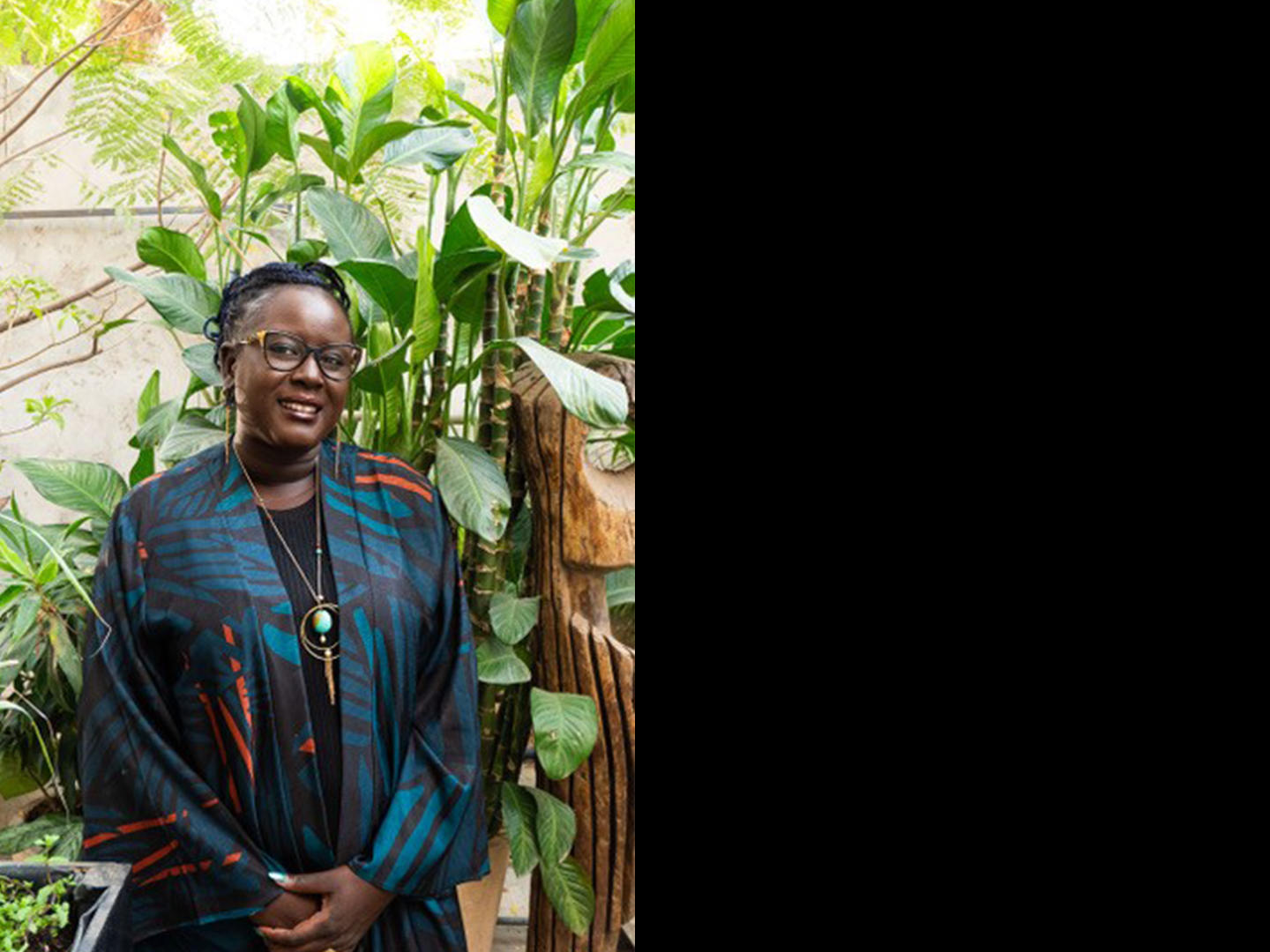
Ola Hassanain trained her focus on the subtle politics of space – namely, how built spaces react to and reinforce violence from state entities, which in turn, creates a built environment that reflects, responds to, regulates the lives of those who inhabit it.
Her most recent work explores an idea of space as discourse, an expanded notion of space that encompasses political and environmental questions. Her work tries to develop a spatial vocabulary that follows how ruptures presented by political events, make it possible to aspire to new kinds of ecologies. Ola’s development of critical spatial practice is partly informed by her post-academic training which includes an ongoing Rijksakademie Residency, BAK fellowship 2017-2018, and teaching in HKU University of the Arts Utrecht, and Sandberg Institute amongst others.
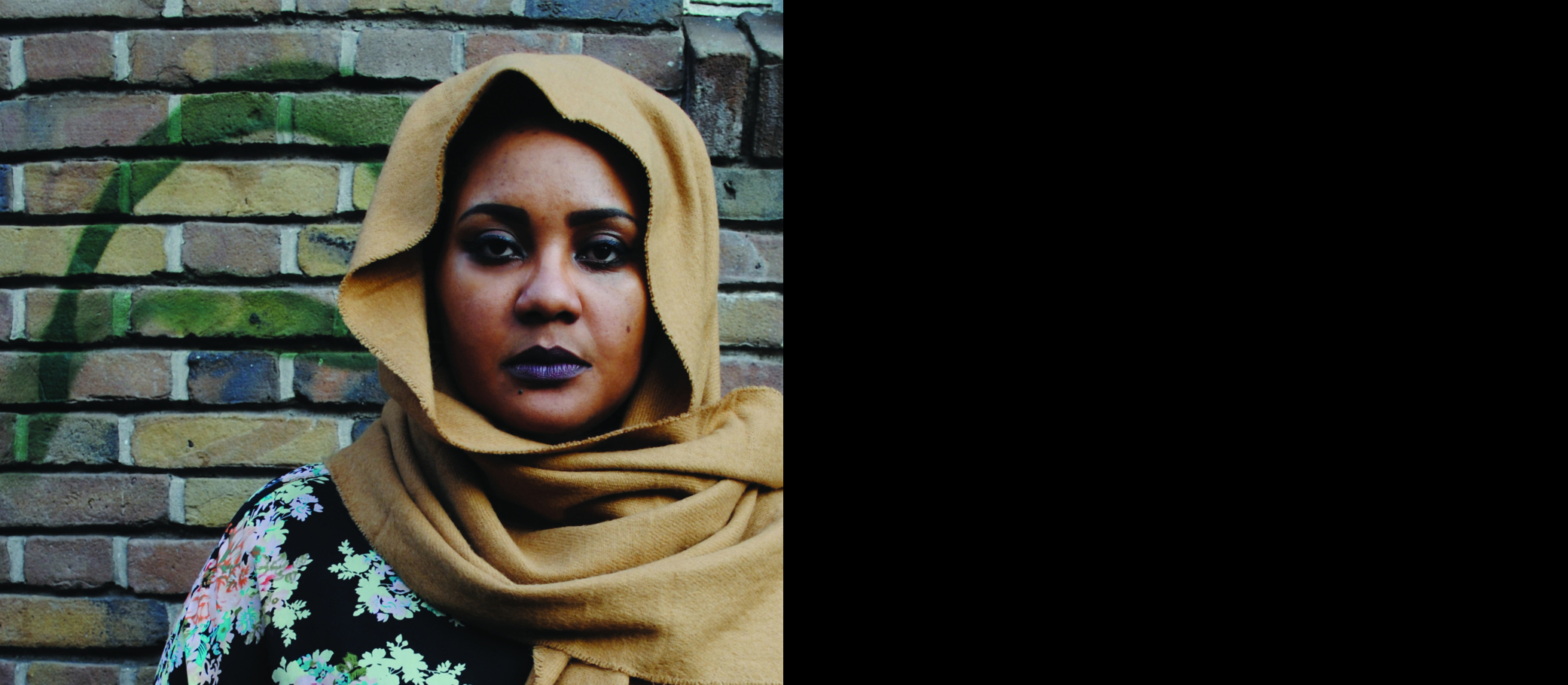
Khensani Jurczok-de Klerk is an architectural researcher, designer, and performer from South Africa. She centres practicing intersectionality through research and design. Her view of intersectionality questions and imagines how efficiency and narratives of the built environment can be more sustainable through ethically social and ecological practices. She is the founder of Matri-Archi(tecture), a collective based between South Africa and Switzerland that aims at empowering African women as a network dedicated to African spatial education.
Her recent research at the University of Cambridge focused on typologies of safe space with aims at reducing Gender-based violence in cities. Through her multidisciplinary approach, Khensani finds educational value in spatial, written and auditory explorations centring storytelling as critical to spatial practice. She researches and teaches at the chair of Affective Architectures with Professor An Fonteyne at the ETH Zürich in Switzerland and collaborates with architectural practice Studio8Fold in London. She hosts a podcast called KONTEXT and serves as an editorial contributor at the Architectural Review in London. She is based between South Africa and Switzerland.
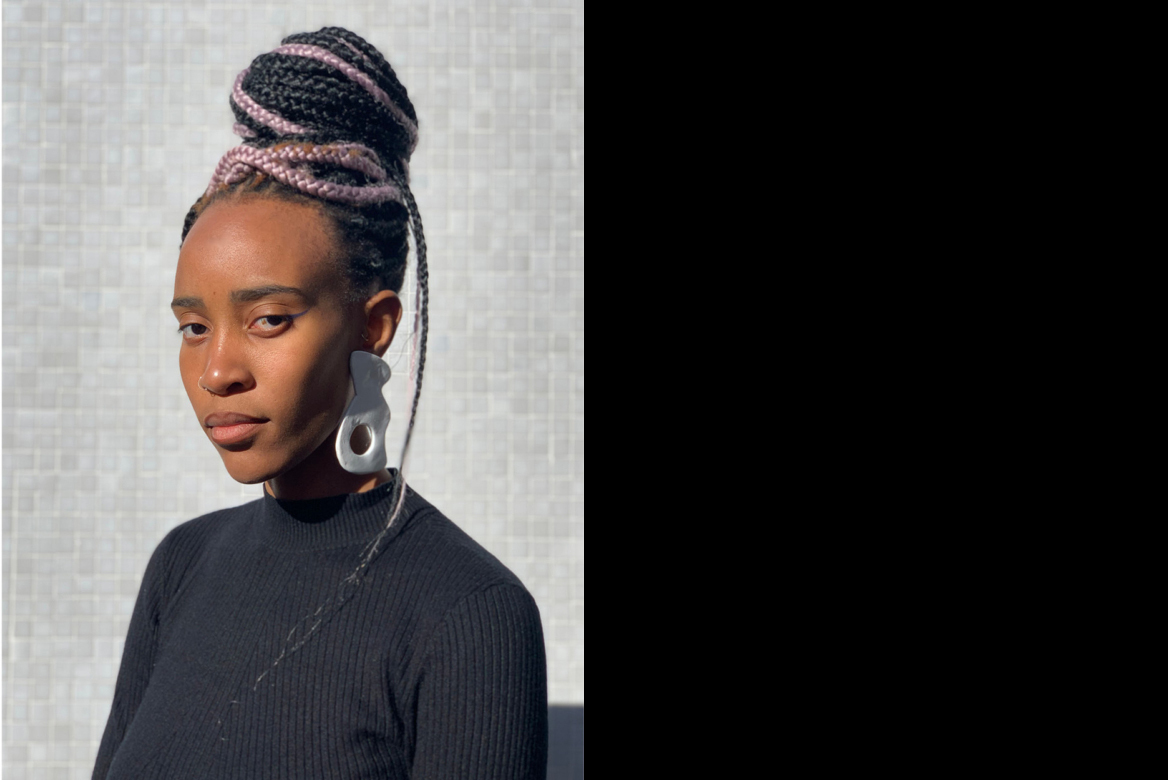
Born in Tangier (Morocco), Hicham Bouzid is a cultural practitioner and independent curator. Since 2010, he collaborated with several art and cultural institutions in Morocco and abroad. After serving for 3 years as a bookseller at Librairie Les Insolites in Tangier, he moved to Marrakech in 2013 to join the team launching Le18, Derb El Ferrane, a multidisciplinary cultural Riad and art residency in the Medina of Marrakech.
Bouzid is the co-founder and artistic director of Think Tanger, a cultural platform that explores the urban space and social fabric of Tangier through projects operating at the crossroad of contemporary art, design, participatory research and urban fields, featuring also an atelier for visual art production focusing on printing practices. He recently published MAKAN, a cultural magazine that tackles questions about art, architecture and urbanism.
His curatorial practice produces various outputs: exhibitions, seminars, talks & podcasts, open studios, prints and books. He uses all these mediums to reflect on todays complex dynamics of Morocco, studying more specifically the impact of the neoliberal polices undertaken since the past 25 years on the urban and social scapes.
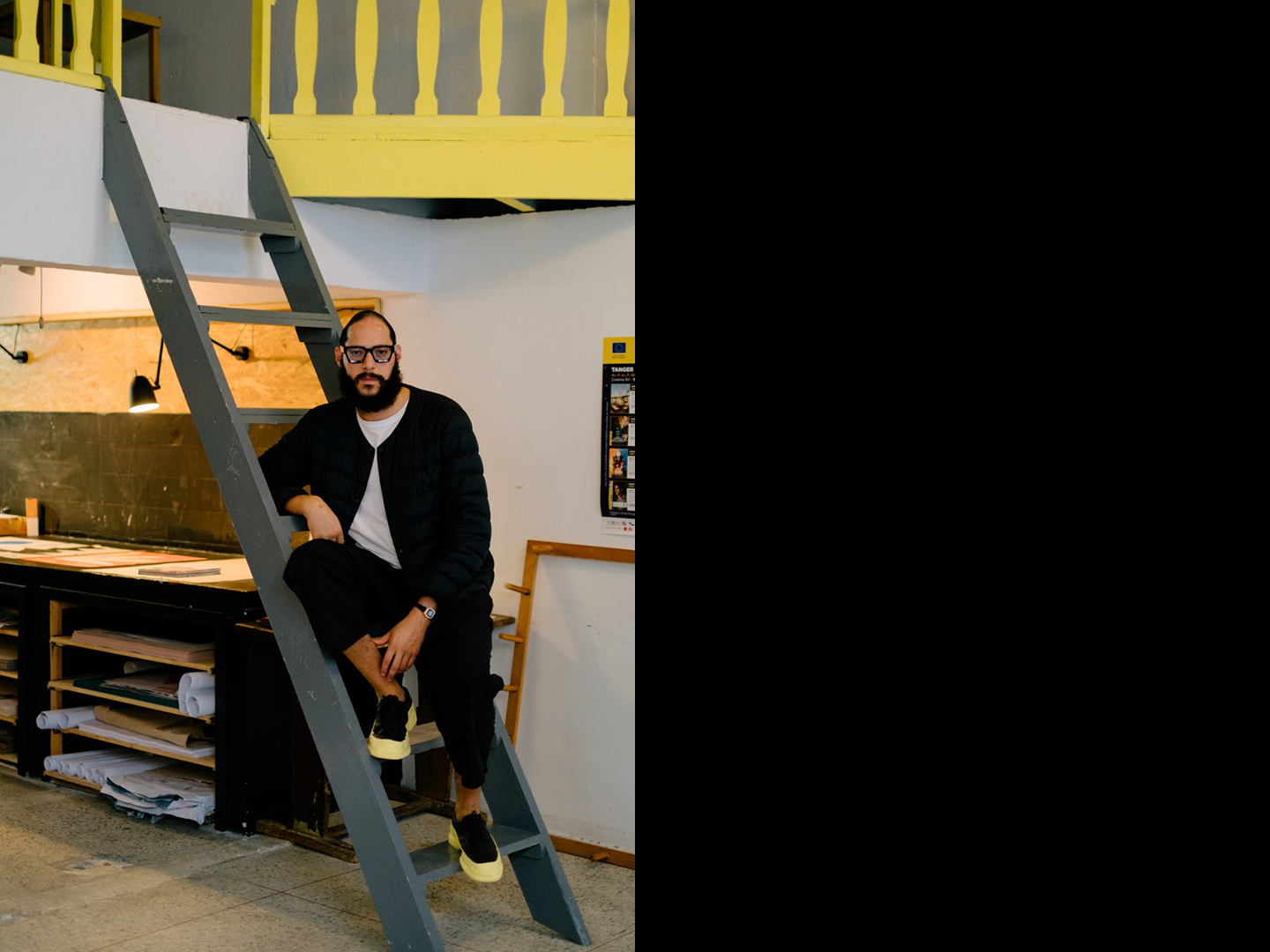
about the Creative Industries Fund NL
The Creative Industries Fund NL is the Dutch cultural fund for design, architecture, digital culture and every imaginable crossover. The Fund supports remarkable and innovative projects, research and activities by designers, makers and cultural organisations in the creative industry. Through various schemes and open calls, the Fund’s Internationalisation programme aims to promote international exchange and collaboration with the Dutch creative industry. One specific component is the international programme Inclusive Cities and Societies through Design, through which the Fund stimulates the contribution of design to the Sustainable Development Goals (11 and 16). For this programme component, the Fund focuses on (knowledge) exchange between the Dutch creative industry and African creative industries. The Building Beyond Mentorship and partnership with the Prins Claus Fonds are part of this programme.
about the Prince Claus Fund
The Prince Claus Fund has more than 25 years of experience in supporting cultural and artistic initiatives in challenging circumstances. The Fund's mission is to support, connect and celebrate cultural practitioners where culture is under pressure through a sequence of the Prince Claus Awards: Seed, Fellows & Impact Awards. The Fund has been a successful actor and liaison in the arts and culture sectors globally, generating possibilities for critical discussion and boosting creative expression. Because of its track record and autonomy, the Fund is seen as a global leader in supporting independent cultural initiatives of the highest quality with a broad social impact.






